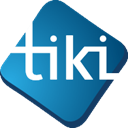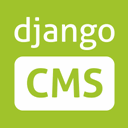Uncovering the Best BrowserCMS Alternatives for Your Website
BrowserCMS is a well-known open-source Ruby on Rails Content Management System (CMS) that has served many web developers and content creators. While free and functional, evolving web needs and diverse project requirements often lead users to seek out more tailored or feature-rich solutions. If you're looking for a powerful BrowserCMS alternative, whether for enhanced scalability, different technological stacks, or a broader feature set, this guide will help you navigate the best options available.
Top BrowserCMS Alternatives
Whether you're building a simple blog, a complex e-commerce site, or a robust enterprise platform, there's a BrowserCMS alternative out there perfectly suited for your project. Let's dive into some of the leading contenders that offer diverse functionalities and cater to various technical proficiencies.

WordPress
WordPress is a highly popular open-source platform, a versatile BrowserCMS alternative for creating websites, blogs, or apps. It's available across multiple platforms including Mac, Windows, Linux, Web, Android, iPhone, Android Tablet, iPad, and can be self-hosted, running on PHP. Its extensive features include blogging, powerful customization options, a vast plugin ecosystem, self-deployment, and integrations with Google Plus, Facebook, and IFTTT, making it ideal for scalable and feature-rich projects.

Ghost
Ghost is a modern, open-source publishing platform built with Node.JS, making it an excellent BrowserCMS alternative for bloggers, journalists, and online publications. It runs on Mac, Windows, and Linux, and offers self-hosting capabilities. Key features include intuitive nodes for content creation, strong Markdown support, and streamlined publishing workflows, ideal for those focused on content delivery.

Drupal
Drupal is a robust, free, and open-source CMS written in PHP, serving as a powerful BrowserCMS alternative for complex web projects. It's web-based and self-hosted, offering a highly modular system, extensive customization, data export/import, and multiple language support. Drupal is perfect for enterprises and communities needing flexible content management and powerful integration capabilities.

Joomla
Joomla is an award-winning free and open-source CMS, making it a strong BrowserCMS alternative, also based on PHP. It's self-hosted and designed for building versatile websites and powerful online applications. Its features include a modular system, e-commerce integration, and a comprehensive website builder, offering a balance of flexibility and ease of use.

Grav
Grav is a unique free and open-source CMS that distinguishes itself as a flat-file CMS, requiring no database, which makes it an excellent BrowserCMS alternative for performance-focused sites. It's web-based, self-hosted, and PHP-driven with Markdown support. Key features include speed, Twig Templating, extensive plugin extensibility, blogging capabilities, and two-factor authentication, simplifying deployment and maintenance.

ProcessWire
ProcessWire is a friendly yet powerful open-source CMS and CMF (Content Management Framework), making it a robust BrowserCMS alternative. It's free and available on Mac, Windows, Linux, and Web, with self-hosting capabilities and PHP as its core language. It offers an API, multiple languages, custom data fields and templates, front-end live editing, and a headless CMS option, providing incredible flexibility for developers.

Tiki Wiki CMS Groupware
Tiki Wiki CMS Groupware is a comprehensive free and open-source, multilingual Wiki+CMS+Groupware solution, suitable as a BrowserCMS alternative for collaboration-heavy environments. It runs on Mac, Windows, Linux, and Web, supports self-hosting, and is built on PHP. Its features include bug reporting, CRM, forums, group collaboration, knowledge management, and a robust website builder, making it ideal for team-oriented projects.

MODX
MODX is a free and open-source Digital Experience Platform, making it a compelling BrowserCMS alternative that offers complete creative control. It's self-hosted and PHP-based, supporting blogging, publishing, and robust web server functionalities. MODX is favored by developers and designers who need maximum flexibility without compromise on front-end delivery.

concrete5
concrete5 is a free and open-source CMS available on the Web and for self-hosting, making it a user-friendly BrowserCMS alternative that balances developer and site owner needs. Its defining feature is in-context editing, allowing users to make changes directly on the live page, streamlining content updates and website management.

django CMS
django CMS is an enterprise-grade free and open-source CMS built with Django and Python, providing a robust BrowserCMS alternative for scalable web applications. It runs on Mac, Windows, Linux, and Web, supporting self-hosting. Features include drag-and-drop content editing, dynamic content capabilities, extensibility by plugins, multiple language support, and strong SEO tools, making it ideal for complex, international projects.
Each BrowserCMS alternative offers a unique set of strengths, from extensive plugin ecosystems to specialized publishing tools or developer-friendly frameworks. Consider your project's specific requirements, your team's technical expertise, and your budget to select the best fit. Experiment with a few options to find the CMS that empowers your digital presence most effectively.